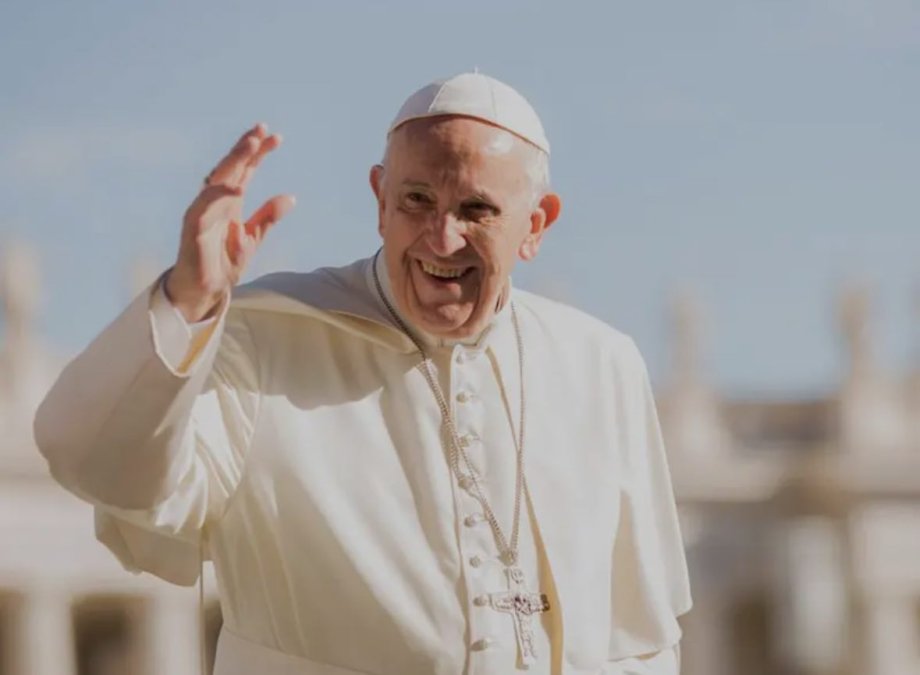The Lasting Legacy of Humility of the Pope
The Lasting Legacy of Humility of the Pope
Pope Francis, the first Latin American leader at the head of the Roman Catholic Church, has passed away. The Vatican announced this news in a video statement on Monday, April 21. He was 88 years old and had recently recovered from a severe bilateral pneumonia. Pope Francis was the first pope in history from Latin America to lead the Catholic Church through decades filled with reforms and controversies.
Born as Jorge Mario Bergoglio in 1936 in Buenos Aires, Argentina, he was known for his humble demeanor, passionate advocacy for social justice, and efforts to promote tolerance within the Church. His voice was heard beyond the Catholic Church as well.
From Jorge Bergoglio to Pope Francis
Before entering the Church, Jorge Bergoglio studied chemistry at university. He was ordained as a priest in 1969 and appointed as the Archbishop of Buenos Aires in 1998, a position he held until his election as pope. Following the resignation of Pope Benedict XVI in early 2013, Jorge Bergoglio was elected as the 266th pope of the Catholic Church and chose the name Pope Francis, inspired by Francis of Assisi, one of the most famous and revered figures in Christian history who dedicated his life to serving the poor.
Pope Francis inherited a Church from his predecessors that was full of ongoing challenges and crises, affected by repeated scandals of sexual abuse by Christian clergy against children.
Catholic Church historians consider his election a significant moment in Vatican history, indicating a desire to transform the Church into a more inclusive and outward-looking institution.
From the start of his papacy, Francis made headlines with his humble gestures.
Instead of living in the luxurious Apostolic Palace, traditionally the official residence of Catholic popes, he resided in a small apartment in the Vatican guesthouse and repeatedly, during Holy Thursday ceremonies, washed the feet of women, Muslims, and prisoners to reflect his message of a Church of and for the poor.
The Pope in the Face of Challenges
In 2013, Pope Francis issued an encyclical titled ‘Laudato Si’’, criticizing consumerism and environmental destruction, earning praise from environmental activists and world politicians. However, some within the Catholic Church criticized him for what they saw as an excessive emphasis on social issues at the expense of traditional Church teachings.
Francis also held controversial and heated meetings with Catholic bishops over the years, discussing topics such as family and youth. In these gatherings, he defended holding Eucharistic ceremonies for Catholics who had divorced and remarried and called for greater roles for women in the Catholic Church.
He also defended the rights of LGBTQ+ individuals and sexual and gender minorities.
At the beginning of his papacy, when asked about gay priests trying to live faithfully within the Church, he replied, ‘Who am I to judge?’ However, critics of Pope Francis argue that his gentle and accepting language ultimately did not lead to structural change within the Catholic Church.
How much Pope Francis’s approach of prioritizing personal encounter and compassion over traditional religious punishments ultimately bridged the gap between LGBTQ+ individuals and the Church will become clear in the next papacy.
The Church’s handling of sexual abuse by Christian clergy against children was another challenging and controversial issue during Pope Francis’s era. From the beginning of his residence in the Vatican, he promised never to tolerate abusers and established a commission for the protection of children. He held multiple meetings with victims, trying to apologize on behalf of the Church. However, groups of victims and their survivors have repeatedly criticized the Vatican for slow, inconsistent, and non-transparent processes.
Incidents such as Pope Francis’s initial dismissal of accusations against Chilean clergy damaged his credibility.
Francis eventually accepted the resignations of several Chilean bishops for covering up the scandals and expressed regret for his initial defense of Bishop Juan Barros.
The Legacy of Pope Francis
The death of Pope Francis marks the end of an era that was both inspiring for many around the world and divisive among Catholic Christians.
Supporters of Pope Francis praise his simplicity and focus on social justice, while critics point to insufficient progress in structural and lasting reforms within the Church. His death is not only the end of an era but also a new beginning for the Catholic Church, which must continue to grapple with questions about its traditions, social engagement, and moral leadership in a rapidly changing world.

